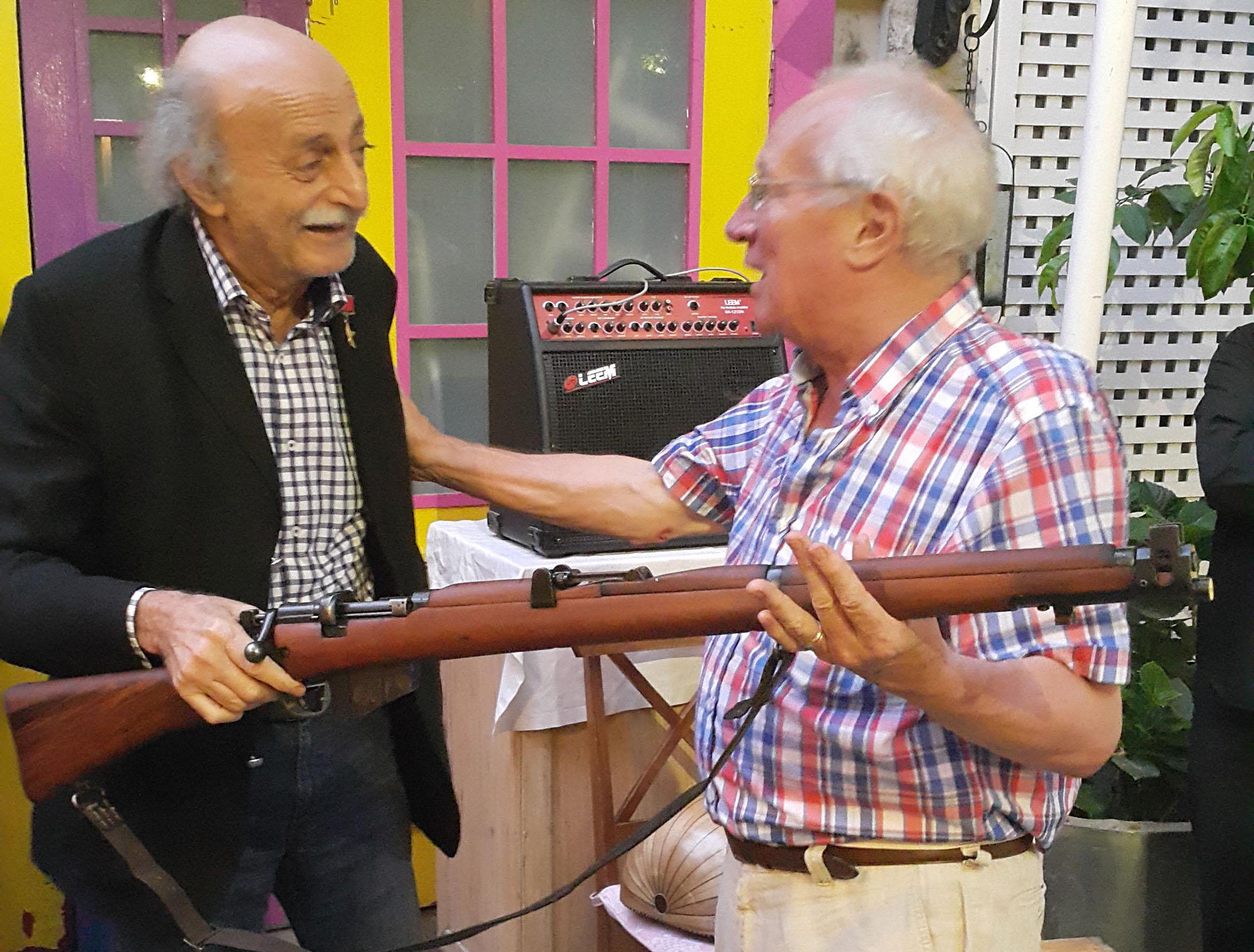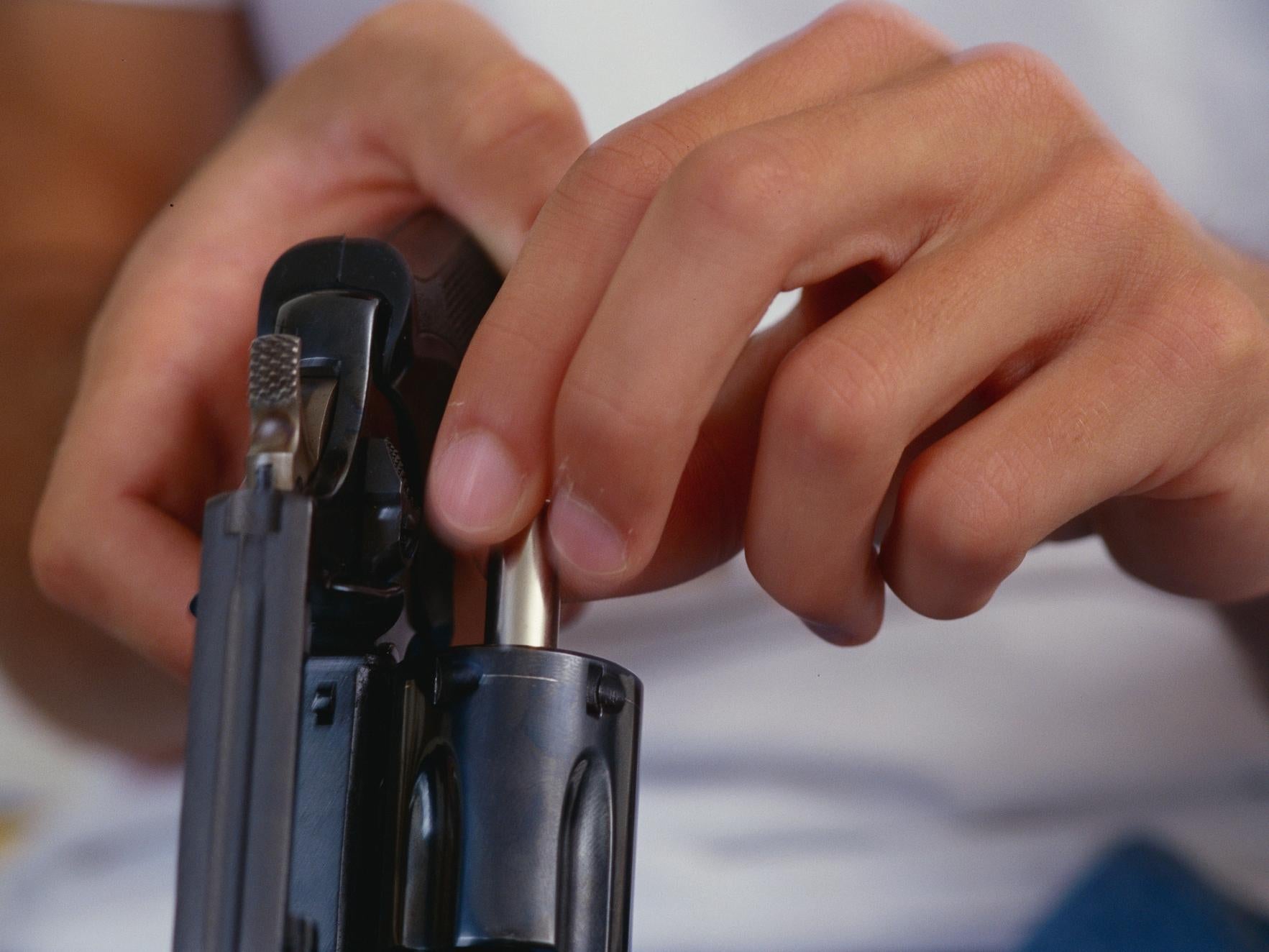After receiving a gun for my birthday, I reconsidered my relationship with firearms
In an age when guns and bombs are used to kill the innocent in Paris, Belgium, London and Dallas as well as Baghdad, Aleppo and Kabul – indeed, in Birstall – even an old blunderbuss must acquire a disturbing symbolism


Your support helps us to tell the story
From reproductive rights to climate change to Big Tech, The Independent is on the ground when the story is developing. Whether it's investigating the financials of Elon Musk's pro-Trump PAC or producing our latest documentary, 'The A Word', which shines a light on the American women fighting for reproductive rights, we know how important it is to parse out the facts from the messaging.
At such a critical moment in US history, we need reporters on the ground. Your donation allows us to keep sending journalists to speak to both sides of the story.
The Independent is trusted by Americans across the entire political spectrum. And unlike many other quality news outlets, we choose not to lock Americans out of our reporting and analysis with paywalls. We believe quality journalism should be available to everyone, paid for by those who can afford it.
Your support makes all the difference.We journos take a rather dim view of guns. We hate them, we loathe them, we know quite a lot about them, we wouldn’t be seen dead next to them – in every sense of the word – but we can’t deny they are part of the history of the last hundred years. Even of ourselves. That’s what happened to me at my birthday party a few hours ago when Walid Jumblat, the Lebanese Druze leader and the most intellectual cynic in his country’s politics, said he had “a little gift for me” to commemorate my soldier Dad in the First World War.
And with a flourish, my generous guest produced a bolt-action Lee Enfield 303 rifle, complete with shoulder strap, the very weapon my father carried in the conflict of 1914-18. And the moment I held it, the first thing I asked myself was: how could 19-year old Bill Fisk have tramped up to the Third Battle of the Somme in 1918 with this massive weight over his shoulder? I could hardly stand – let alone run – if I was encumbered by this 9-lb monster.
And then, of course, came the old question. What do you do with a rifle which may, albeit a century ago, have killed the innocent? Or the guilty? I’m a journalist, not a soldier.
And in an age when guns and bombs are used to kill the innocent in Paris and Belgium and London and Dallas as well as Baghdad, Aleppo and Kabul – indeed, in Birstall - even an old blunderbuss must acquire a disturbing symbolism. Is there something of primeval attraction about weapons? Is it the sense of power they convey? Or their commitment to fulfill human anger? We scribes might write about these things – but not touch them.
I know all the arguments. Back in 1980, I was put aboard a Soviet military convoy from the Salang Pass to Kabul in Afghanistan. The Russians wanted me to leave the area of the Panshir Valley and so – part-prisoner, part-guest – I found myself in a truck with a Soviet army driver. But a little later, our convoy was ambushed by the ‘mujahedin’ and, after a few seconds’ hesitation, the driver handed me a spare but loaded Kalashnikov rifle. I would never, I hope, have used it. But if the ‘mujahedin’ had managed to wrench open the truck door, they were unlikely to ask if I was a member of the National Union of Journalists before opening fire.
Soviet jets rescued the convoy, I handed back the rifle to its owner and arrived safely in Kabul. I reported it all to my then paper, ‘The Times’ – only to have a now long-dead Reuters general manager condemn me, a reporter, for holding a rifle in Afghanistan, “much though everyone will understand the natural instinct for self- preservation”. From his air-conditioned London office 5,700 kilometres from Afghanistan, the dangers of the place were mercifully unknown to this paragon of journalistic virtue.
But I have to say I’ve always been unhappy with the journos who wear military costumes when they go to war, are content to ‘embed’ — that ghastly word – with NATO armies, and preoccupy themselves with guns and aeroplanes. A few reporters even used weapons in Vietnam and in the 2003 invasion of Iraq. Ouch.
But what to do about my birthday gift from Walid Jumblat? Most of the old British rifles to be found in the Middle East are veterans of the First World War invasion of Iraq and the 1916 surrender of Kut al-Amara, one of the most disastrous defeats in British army history. The Turks took the guns and resold them until some turned up in World War Two. Albeit introduced to the British army in 1895, it was also a much used rifle in the 1939-45 conflict and still manufactured afterwards.
Weapons I despise – their users even more so – and America’s regular mass murders have added a new psychological mystery to the US obsession with weaponry. But does this mean that every English civil war sword must be taken down from the walls of British pubs, or 18th century highwaymen’s pistols disappear from Cornish hostelries on the grounds that they may have been used to stab someone or shoot their head off? Is every Wexford pike to be destroyed because it might have been used against Protestants as well as Englishmen?

My father once taught me to shoot – a habit I put to use in the horrible Combined Cadet Force at my unpleasant minor public school in Kent. We boys were also trained then on the very same century-old Lee Enfield 303s that my father possessed in the Great War, and to fire on targets depicting German soldiers in coal-scuttle helmets. “Stop calling them Germans, Fisk," the local ex-Royal West Kent major shouted at me once. “You may be fighting other people!”
Thanks be to God, no. But an awful lot of ‘other people’ – Arabs, Israelis, Serbs, Algerians, Iraqis and Syrians – have tried to shoot in my direction over the past 40 years. Which is why I hate guns. They are intended to kill – and I’m not fooled by the knife manufacturers who claim they cannot be held to account for stabbings since they never knew their buyer would use their product for murder. Arms manufacturers are well aware that their bombs and missiles are not intended for target-practice on balloons.
So back to the Lee Enfield. The first thing I did was rehearse my school-days practice of opening the bolt to ensure the wretched thing had no live rounds in the breach so I wouldn’t shoot Jumblat or my other birthday guests. The second was to remember that Jumblat himself was master of a Druze militia during the 1975-90 Lebanese civil war. The third was to comfort myself that hitherto I was about the only inhabitant of Lebanon who did not own a gun – the Lebanese were legally allowed to keep small arms after the war ended, so as not to be afraid of their equally armed neighbours.
But I’ve never been afraid of my neighbours. Do I hang my Lee Enfield on my Beirut apartment wall along with my old prints of French troops landing in Lebanon to protect the Christians from the Druze in August 1860? And if not, why did I keep that old, framed ‘Illustration’ sketch of those blue-uniformed French soldiers on my wall in the first place? Look carefully at the picture and you can see rifles in their hands. But pictures of guns are not the same as real guns – and guns, alas, often possess the same lethality in old age as they did in their youth.
Well, the sea rusts most of the metal fittings in my apartment, just as it foxes my books with brown speckles. And as the years go by, I guess the Mediterranean will gradually reduce this memorial to my soldier Dad to the same state of decay as he himself became more than 70 years after his war ended. It’s a memento of my father and of conflicts past, a birthday present which will amaze and perhaps frighten me in equal measure. Perhaps that’s what Walid Jumblat intended. Journalist or not, the nearer you are to a gun, the more you should understand what it represents. Treat it with dangerous respect.